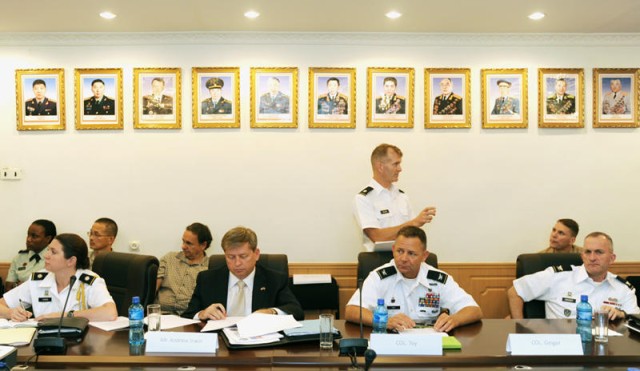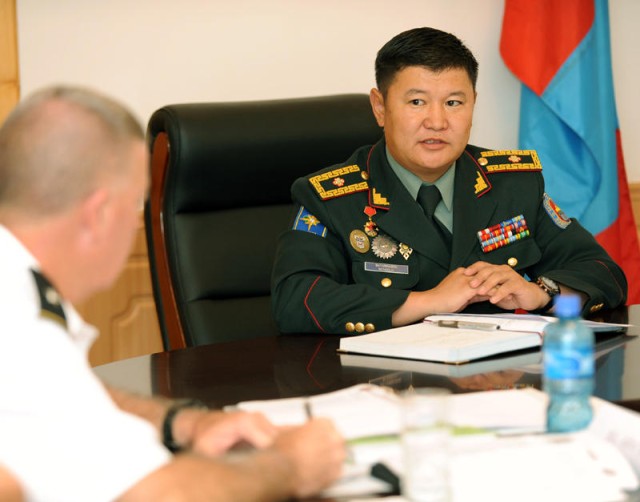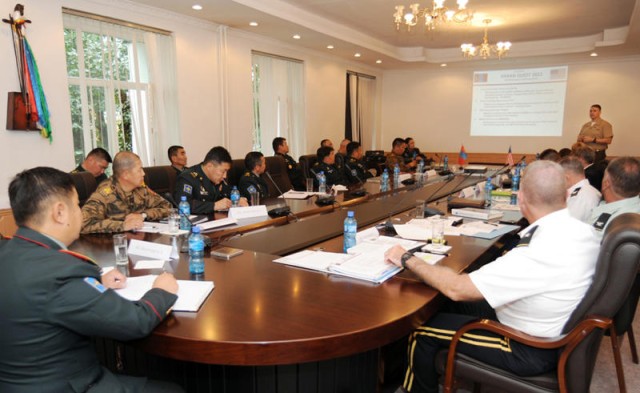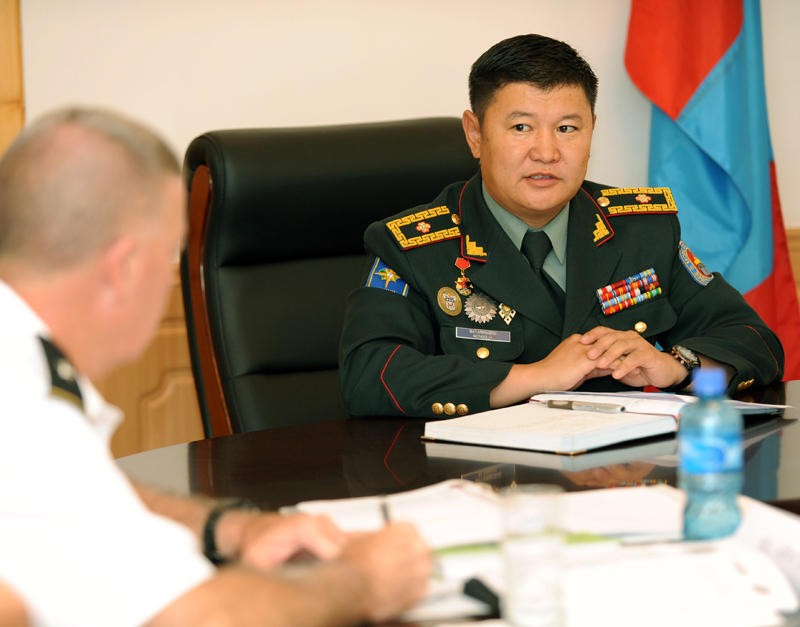ULAANBAATAR, Mongolia - More than 25 U.S. and Mongolian military leaders gathered in Ulaanbaatar, Mongolia for the inaugural Mongolian Armed Forces Senior Leader Seminar Aug. 18.
The seminar brought together senior officers from the Mongolian Armed Forces, U.S. Defense AttachAfA Office, Department of the Army Headquarters, U.S. Army Pacific Command (USARPAC), Marine Forces Pacific and Alaska National Guard.
Leaders discussed topics of mutual concern and established a framework to shape upcoming exercises and other security cooperation activities. The seminar also enhanced interpersonal relationships among senior leaders.
Brig. Gen. John E. Seward, deputy commanding general, U.S. Army Pacific, and Mongolian Armed Forces Deputy Chief of Staff Brig. Gen. Byambasuren Bayarmagnai exchanged ideas and plans to further build interoperability.
"The goal of the seminar is to look at the future of the Mongolian Armed Forces and U.S. Army Pacific cooperation," said Bavarmagnai. "This seminar helps our senior staff's planning efforts because we understand each other's proposed goals and objectives."
Maj. Dwayne Stanton, Mongolia country desk officer, U.S. Army Pacific Command Security, Cooperation and Policy, manages the relationship between the U.S. Army and Mongolia. Stanton is stationed at Fort Shafter, Hawaii.
"We created a forum where we can have general officer strategic dialogue about the relationship," said Stanton. "So far we had been focused on action officer and staff level execution. Now we're elevating this to the general level."
Lt. Col. Stephen Wilson, state partnership coordinator for the Alaska National Guard, said the seminar demonstrates the cooperative effort between the Guard and USARPAC.
"We're supporting their efforts in theater security cooperation," said Wilson. "Over the past few years we've come a long way in improving the planning effort and synchronization between Mongolian and other country counterparts."
The seminar was held concurrent with Khaan Quest 2010, a bilateral peacekeeping operations training exercise in Ulaanbaatar and Five Hills Training Area Aug. 8-29. The exercise includes a command post exercise, humanitarian and civic assistance project, and a medical readiness training exercise.
This year marks the eighth iteration of Khaan Quest. During the Senior Leader Seminar, participants had the opportunity to start preliminary planning for next year and discuss the future direction of the exercise.
Exercise planners are considering a new scenario to add to situational training lanes at Khaan Quest next year, focused on counter-improvised explosive device (IED). Senior Leader Seminar participants joined U.S. and Mongolian service members engaged in a two-week counter-IED subject matter expert exchange for a special demonstration Aug. 19.
Representatives from the new Asia-Pacific Counter-Improvised Explosive Device Center from Fort Shafter, Hawaii presented the demonstration. An IED similar to those found in Iraq and Afghanistan was rigged to an old vehicle, chosen for the demonstration since it needed to be discarded. The IED was detonated, and followed by a counter-IED team post-forensic analysis. This was the first time the Counter-IED Center shared the demonstration with a partner nation.
"Mongolian Armed Forces are doing peacekeeping operation missions where counter-IEDs are a big threat," said Stanton. "We are sharing information that we've collected from operating in Iraq and Afghanistan so that they're better equipped to deal with and handle counter IEDs."
Stanton organized the Senior Leader Seminar with the intent that it will develop into an annual event.
"It will probably grow and change shape over the years, but my hope is that this is the start of a general officer dialogue that will continue into the future," said Stanton.






Social Sharing